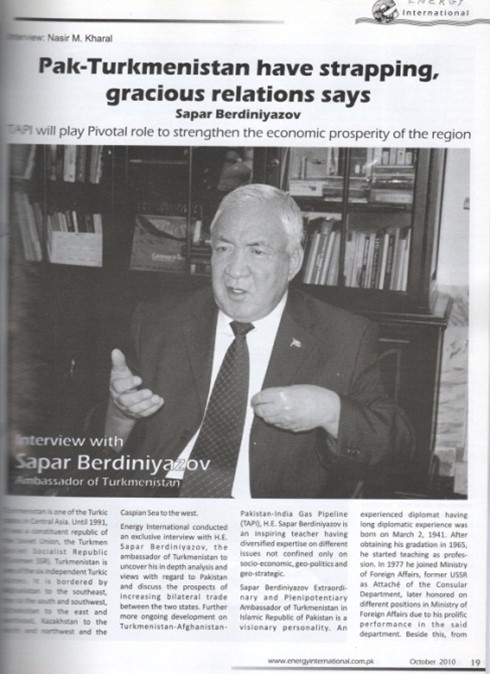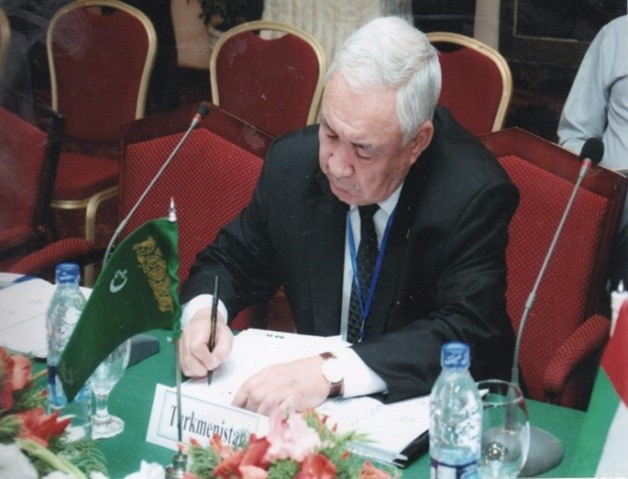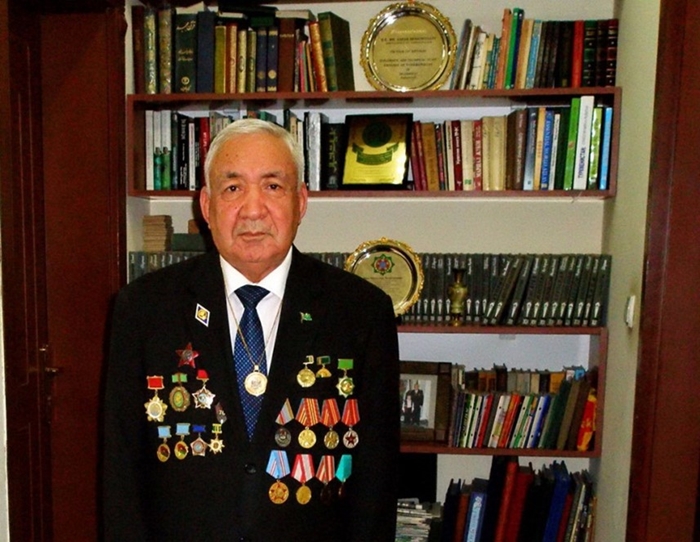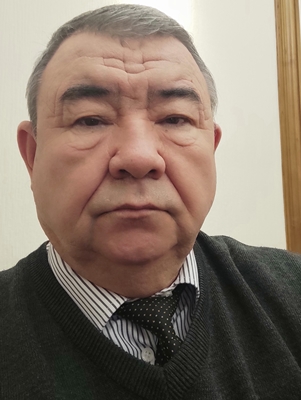Dr. Begench Karayev
Kissinger’s characterization of diplomacy as the art of harnessing power is especially clearly visible in the example of the magnificent literary monument of the East – the tales of “The Book of the Thousand and One Nights.” The legendary heroine Scheherazade, thanks not only to her beauty, but above all to her wisdom and eloquence, managed to break the bloody tradition of the formidable Shah Shahriyar and push back the morning of death destined for her, initially by almost a quarter to three years, and then remove it altogether. As the legend says, Scheherazade, after 1001 nights, came to the king with three sons born during this time. Ruler Shahriyar admitted that he had long ago, even before the children appeared, changed his mind about executing her, because he was convinced of her purity, chastity and innocence.
The history of India, Pakistan, Afghanistan, and Iran and Iraq clearly testifies to the immutable fact that, thanks to their internal culture and deep spirituality, their peoples managed to preserve their identity, gained or defended national statehood. Neither the colonial masters nor other conquerors of the historical past could suppress them.

Thanks to the knowledge of these roots and specifics, and even more importantly, respect and understanding of the East, Ambassador Sapar Berdyniyazov was able, during the years of his diplomatic work, to resolve many, and very difficult, tasks set before him by the Center. They were primarily aimed at eliminating obstacles to good relations with the host country, strengthening friendship and a favorable atmosphere for bilateral political dialogue.
During the most acute periods of events in Afghanistan, and there were many of them, diplomat Berdyniyazov managed to find a common language with seemingly irreconcilable parties in the negotiations. Here it is necessary to make a reservation that Sapar Komekovich’s purely diplomatic career began at a fairly mature age. He came to the USSR Ministry of Foreign Affairs in March 1977, celebrating his 36th birthday. In the same year, he was sent to Pakistan as an employee of the USSR consulate in Karachi. More than five years of service in Karachi coincided with difficult periods not only in the life of Pakistan, but throughout the Near and Middle East. This was a period of history when the seething waves of the “anti-Western” gave way to the atmosphere of the harsh “anti-Shuravi”. They were caused, respectively, by the tectonic consequences of the Islamic revolution and the introduction of the so-called “limited contingent” of Soviet troops into the neighboring country.
In the fall of 1979, following the seizure of the American embassy in Tehran and the attack by fanatics at the holy Grand Mosque in Mecca, the US embassy building in Islamabad was attacked and burned on November 21. This tragic event was colorfully described by the American author Steve Coll in his book “Ghost Wars” (Coll, Steve. Ghost wars: the secret history of the CIA, Afghanistan, and bin Laden, from the Soviet invasion to September 10, 2001).
This whole chain of events was not an accident, because then, in front of the eyes of the Muslim world, the USA was designated as the “Greater Satan”, and the USSR as the godless “lesser Satan”. When in November 1979, riots and mass unrest spread from Islamabad to Karachi with lightning speed, measures to ensure the security of Soviet institutions were entrusted, among other things, to Sapar Berdyniyazov. His area of responsibility was due to the fact that the Aeroflot representative office was located on the street along which crowds of demonstrators walked, destroying and smashing everything in their path. The fact that this foreign mission was not damaged was due to some merit of Sapar Berdyniyazov, since in a short period of time he managed to send agency employees to a safe place and convince the leaders of the speeches to go around the building of the institution.
How the Soviet consul of the country of the so-called “little Satan” managed to do this is left unanswered by Sapar Komekovich, giving his interlocutor a soft oriental smile in response.
No less dramatic events unfolded during Sapar Berdyniyazov’s work as Ambassador of the young and independent Turkmen state in Islamabad. The concerns and attention of our high-ranking diplomat then covered the troubled expanses of neighboring Afghanistan. When the announcement in October 1997 of the Islamic Emirate of Afghanistan, which captured Kabul without a fight in 1996 by the Taliban movement, was rejected almost throughout the world, it was still necessary, at least for the sake of security, to establish contacts with their official representatives. Ambassador Berdyniyazov was then able to find a constructive spirit in relations with Abdul Salam Zaif, the Afghan ambassador from the Taliban accredited in Islamabad. The main achievement of conversations over a cup of aromatic Pakistani tea was to bring to the Taliban’s understanding the truth that Turkmenistan is not part of the former northern enemy – “Shuravi”, but a new, young and independent state, friendly towards the neighboring Afghan people.
As Sapar Komekovich notes, in the East the concept of “tea drinking” is more than tea drinking. At the table of official negotiations, the subject of discussion can only be indicated and the positions of the parties on the issues on the meeting agenda expressed in proportion. Since ancient times in the East, the most problematic, albeit complex or delicate aspects of relations have been resolved through dastarkhan. Although this word simply means “tablecloth,” the essence is in its etymology: “dastur” is a program, a guide to action, an algorithm, and “khan” is the head, the ruler. In sum, “dastarkhan” is a “table of tables” or “tablecloth of tablecloths” for the highest guests and dear friends and relatives. In a political sense, this is the same highest degree for dialogue as “khan-khanan” is for the title of ruler.
Being an Easterner himself, but with a Soviet education and national upbringing, Sapar Berdyniyazov strictly followed both the generally accepted diplomatic protocol and etiquette, as well as the traditions of the country and region of residence.
Here it would be appropriate to quote lines from one of our previous publications, which indicate how intense the work of an ambassador is at turning points in the history of the host country.
It must be said frankly that for many years after the end of the “Afghan war” of the Soviet Union, veteran mujahideen, and then even the Taliban movement, the northern borders of Afghanistan were perceived by inertia as the land of “shuravi”. It was very, very difficult to convince them of the opposite, that their northern neighbors already had a new life there, the former republics were no longer “Soviet”, but “independent”. One evidence of this is some episodes during the Taliban’s assault on the key city of Mazar-i-Sharif on August 8, 1998 and their entry into the northern borders of Afghanistan. The advance detachments of the Taliban examined the bordering Uzbek and Turkmen villages with binoculars, while pronouncing “shuravi, shuravi…”. But, to their credit, the borders of the then young Central Asian states remained secure. This confirmed one of S. Berdyniyazov’s strategic assumptions, expressed in a series of cipher messages, that the “Afghan cauldron,” boiling even at its maximum, most likely will not overflow; this is how the northern borders of the country were understood. In those dramatic days of the Taliban’s arrival in Mazar-i-Sharif, one of the first who managed to get into contact with them were, by chance, young employees of the Turkmenistan consulate in this city, who were fluent in Pashto and Dari, down to some local dialects. Establishing a conversation and conducting a dialogue in a more or less calm tone took enormous effort, and most importantly, the situation required a degree of fearlessness and courage, and at least with a “protocol” smile on your face. Among the bearded and armed crowd, driving around in brand new TOYOTA pickups and firing off victory salutes with black Kalash rifles, were their own intellectual authorities, who realized that in front of them were indeed not “shuravis,” but real diplomats.
But this was after several fireworks from machine gun fire over their heads, which added a significant dose of adrenaline to the veins of our guys, who still had not yet gotten rid of the anxiety of uncertainty on the part of the jubilant Taliban. Some calm came soon after receiving an encrypted message from Islamabad, where the ambassador announced that the Taliban were under protection and would ensure the safety of the staff and building of the Turkmen consulate. Now, while representatives of “different”, but humanly “identical” youth were drinking tea and laughing heartily, our ambassador in Islamabad, who was aware of events 24/7 almost without sleep, was not laughing . For he, anticipating the development of events and on behalf of the Center, had already been conducting preliminary and difficult negotiations for several days with some Taliban leaders in Kabul and their representatives in Pakistan to ensure the integrity and security of the diplomatic missions of Turkmenistan in Afghanistan, including in Mazar-i-Sharif.
 From the first days since the establishment of diplomatic relations with Turkmenistan on May 9, 1992, Pakistan has taken positive steps to bring closer and establish fruitful cooperation with Turkmenistan.
From the first days since the establishment of diplomatic relations with Turkmenistan on May 9, 1992, Pakistan has taken positive steps to bring closer and establish fruitful cooperation with Turkmenistan.
This was the considerable merit of Ambassador S. Berdyniyazov, who was able to straighten out many of the “irregularities” of the then existing stereotypes, relying on his experience and knowledge of the region, on the results of deep analytical work, which he carried out on a constant basis. He knew many of the intricacies of relations with the political and military elite of the host country, and had useful contacts with representatives of business circles, scientists and creative people. Thanks to this, S. Berdyniyazov developed and implemented many useful recommendations and tools approved by the Center.
The doors of the embassy were open to friends of Turkmenistan, including representatives of the Turkmen diaspora in the country who were forced to stay on Pakistani soil as refugees from Afghanistan. S. Berdyniyazov witnessed firsthand the pain of people and their longing for their homeland, and this largely became the basis for the subsequent creation of the Pakistani branch of the Humanitarian Association of Turkmens of the World. Its participants took an active part in organizing numerous cultural events dedicated to the historical figures of Turkmenistan and Pakistan, primarily the Khan-Khanan Bayram Khan and his son Abdurahman Khan.
Before his appointment at the beginning of 1995 as ambassador to Pakistan, S. Berdyniyazov worked in the central office of the Ministry of Foreign Affairs of Turkmenistan and was in charge of his professional direction. Accordingly, he was already informed about some incidents related to the Taliban, in particular that near Kandahar a detachment of local mujahideen rapists was defeated by the newly-minted defenders of the faith, led by a hitherto unknown certain Mullah Omar.
The fact that yesterday’s Mujahideen jihadists took the path of robbery and plunder had its justification. By this point, Rabbani’s government had practically disintegrated into warring national-ethnic factions with a tribal worldview. The field commanders, deprived of generous Western aid, stopped paying salaries to their fighters, and they began to rob the civilian population. All local power passed into the hands of the former, but now degrading Mojahideen. As a result, hundreds of people, according to the Amnesty International report, disappeared without a trace, and torture and violence against women and children became widespread.
A kind of bifurcation point was the incident when, in November 1994, a certain Afghan family was stopped near Kandahar at a checkpoint of a local mujahideen detachment. The men were beaten and robbed, and the women were raped. As the legend says, having learned about this, Muhammad Omar and his men rushed to the checkpoint and immediately dealt with the rapists. This is how the history of the Taliban movement began.
The population, suddenly seeing in the “students of the madrasah” (Taliban) a force capable of curbing the arbitrariness of the field commanders, supported them with all their hearts.
Also in November 1994, one of the Kandahar field commanders captured a convoy of trucks. The day before, this column with all the celebrations was sent from Pakistan in a northern direction – to Central Asia. This transport caravan was supposed to symbolize the safety of Afghan roads. The Taliban, who had arrived by that time, freed the cargo and destroyed the robbers. The caravan of cars following the ancient trade route continued its journey to the border with Turkmenistan.
Information about the actions of Taliban troops led by Mullah Omar spread across information channels around the world. This showed that Afghan roads, if not safe, are at least under control. This led to the emergence in the near future of certain interests on the part of large transnational corporations exploring the possibilities of involving this region in global business projects. At the same time, one of the attractive points was the presence of the largest reserves of natural gas in Turkmenistan and the prospects for its delivery to the markets of South Asia.
One of the first important tasks for Ambassador S. Berdyniyazov in Islamabad was to ensure support for Turkmenistan’s initiative to acquire international legal status of permanent neutrality at the upcoming ECO summit. The Embassy carried out all the preparatory measures and took the necessary political and diplomatic steps for constructive consideration of this issue by the ECO member states.
Hero-Arkadag, national Leader of the Turkmen people Gurbanguly Berdimuhamedov, in his speech at the 13th ECO summit held in Islamabad on March 1, 2017, emphasized: “On March 15, 1995, it was here in Islamabad at the 3rd meeting of the heads of state and governments of the ECO member countries that the adoption of the Islamabad Declaration in support of assigning neutral status to Turkmenistan took place. The Islamabad Declaration became one of the first international documents that laid the foundation for the Resolution “On the Permanent Neutrality of Turkmenistan,” unanimously adopted by the United Nations General Assembly on December 12, 1995.
It should be noted that the neutrality of Turkmenistan, its firm and principled position of non-interference in the internal affairs of Afghanistan prepared the conditions that made it possible to begin the process of searching for political dialogue between the warring Afghan sides. In March 1999, representatives of the Taliban and the Northern Alliance sat down at the negotiating table for the first time in Ashgabat. Such an active and constructive policy of Turkmenistan, carried out in line with the efforts of the UN, has earned it high authority among neighboring states and in the region as a whole, and has rightfully promoted Ashgabat to the category of recognized peacekeeping centers in Asia.
To this we add that on February 2, 2017, the General Assembly of the United Nations also adopted a Resolution declaring December 12 as International Day of Neutrality. The decision of the Community of Nations was recognition of the enormous merit of neutrality in ensuring peace on the planet, security and stability, which in turn corresponds to the goals of ensuring the sustainable development of all countries and peoples, careful preservation, as well as strengthening the spiritual, cultural and humanitarian foundations of their lives.
… The morning of the working day of the veteran ambassador and youth mentor Sapar Komekovich Berdyniyazov, respected by all of us, within the walls of the Higher School of National Diplomacy of Turkmenistan, as usual, begins with a cup of strong black coffee without sugar. And after classes and fascinating conversations with students, a cup of coffee gives way to a small cute teapot with green tea, quietly breathing under a special cape.
During one of these “tea break” moments, I once asked the respected ambassador about the reasons for such a late start to his diplomatic career in his life, as we mentioned above – already when he was well over thirty. He smiled softly as always and replied: “I never thought or intended to become a diplomat. Ever since I was at school, I dreamed of the sky and entered the Krasnokutsk Flight School near the city of Saratov. After some time of study, I had to give up my dream due to an error by the medical board, which allegedly discovered some noise in my chest area. As a result, I entered the foreign language school of our university and worked for a long time in one of the scientific institutions.”
Another time, over a cup of coffee, I asked Sapar Komekovich: “Returning to the question of a dilemma for a diplomat, do you think there is one?” He replied: “I wouldn’t say categorically yes or no. If diplomacy is the art of the impossible, then there can be no room for an “either-or” choice. According to him, Thucydides’s Dilemma (Thucydides’s Trap) preceded Aristotle’s classical logic, which establishes the relationship of two opposites: “truth” and “falsehood.” Subsequently, this seemed to be a dichotomous system and became the basis for a Eurocentric black and white vision of the East. But such straightforward logic contains internal contradictions. Let us take for comparison Europe as the “homeland of democracy” and Asia, as it were, “infested with despotism.” After all, the same Aristotle described democracy as a type of tyranny, only divided among many. There is also an aphorism attributed to Churchill: “Democracy is the worst form of government, apart from all the others.”
In this context, Sapar Komekovich adheres to the theory of the famous American mathematician of Azerbaijani origin Lutfi-Zadeh, who in the mid-60s of the last century put forward and proved the theory of nonlinear logic. According to this logic, there is no 100 percent “0” or the same “1”, that is, in every truth there is a share of lies, and in every lie there is a share of truth. If we translate the issue onto the diplomatic plane, then any war contains the key to peace, and in any world there are seeds for discord and war. Therefore, the task of a diplomat is to find these hidden elements and use them for peaceful relations.
 Listening to the patriarch’s reasoning, I thought: “Yes, aviation once lost a potentially best pilot, but diplomacy gained an unsurpassed ace in his field.” I would also add here that in the end, the rise of Berdyniyazov the diplomat turned out to be much higher than just the peaks of the starry sky.
Listening to the patriarch’s reasoning, I thought: “Yes, aviation once lost a potentially best pilot, but diplomacy gained an unsurpassed ace in his field.” I would also add here that in the end, the rise of Berdyniyazov the diplomat turned out to be much higher than just the peaks of the starry sky.
He essentially became an ace in his profession, and with a star award on his chest. I mean that rare case when a diplomat was awarded the military order of the Red Star and corresponding high awards from the host countries. At the same time, Sapar Komekovich with particular pride wears state awards of his beloved Motherland – Independent and Neutral Turkmenistan.
CONCLUDED.

Dr. Begench Karaev deals with the problems of philosophy of law and politics. He is the author of a number of textbooks and monographs, including “Political analysis and strategic planning”, “Political analysis: problems of theory and methodology: (Experience in the study of modern Central Asian society)” and “Traditional and modern in the political life of Central Asian society (experience of political analysis)”. /// nCa, 8 December 2023